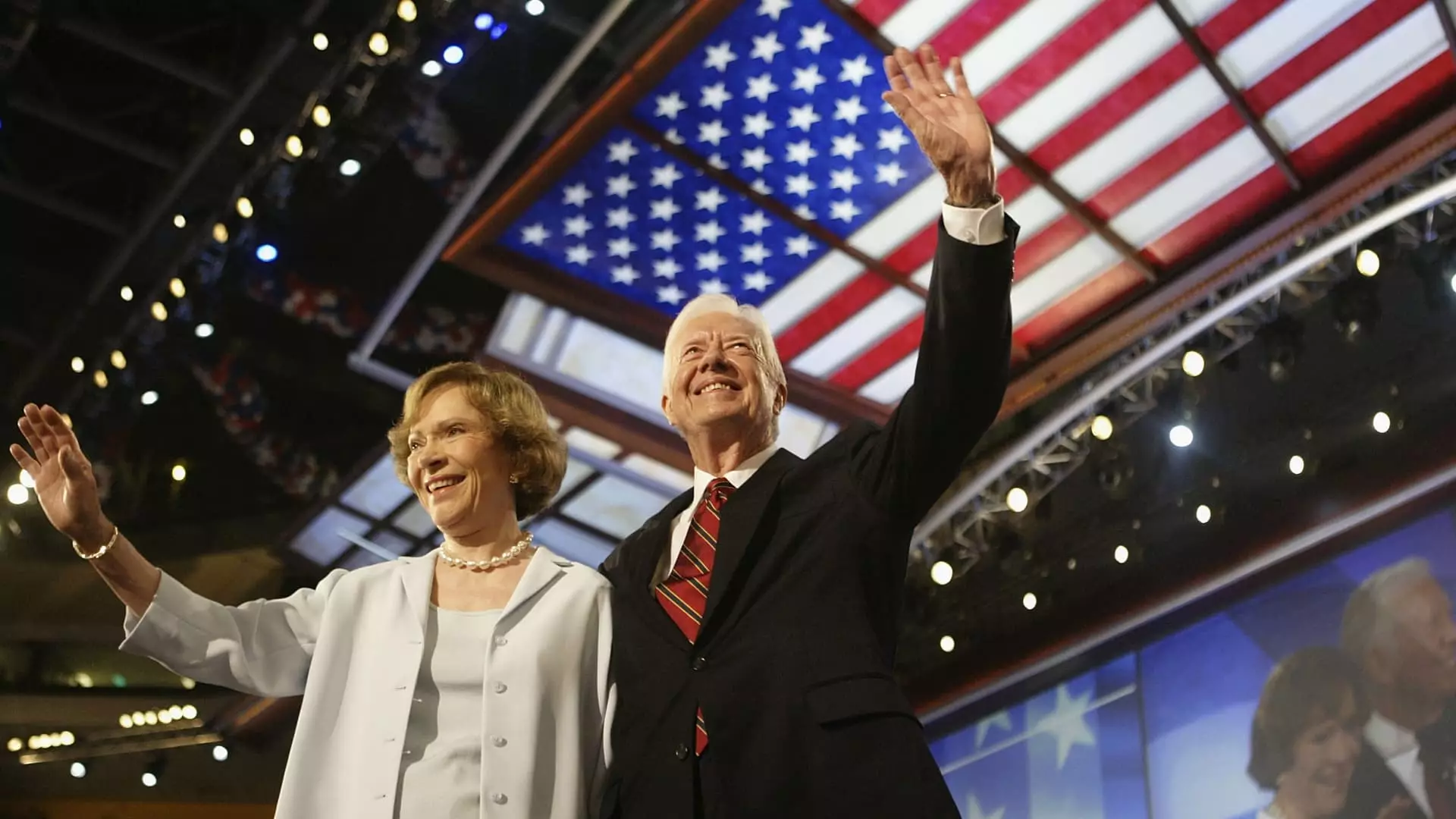The passing of Jimmy Carter, the 39th President of the United States, has evoked an extraordinary response from leaders spanning the political spectrum. Just moments after the announcement from the Carter Center, tributes began to pour in from both Democratic and Republican officials, reflecting the profound impact Carter had as a leader and an individual. Senate Majority Leader Chuck Schumer noted that Carter’s legacy is etched in his faith in the American people and his unwavering commitment to kindness and humility.
This sentiment was echoed by outgoing Senate Minority Leader Mitch McConnell, who likened Carter’s dedication to the nurturing of the land in his home state of Georgia. McConnell drew parallels between Carter’s agricultural roots and his lifelong commitment to service, suggesting that just as crops flourish in healthy soil, so too did Carter’s character flourish in the nurturing environment of American values. This metaphor underscores a broader theme—the intrinsic connection between leadership, service, and the nurturing spirit of community.
Former President Bill Clinton and former Secretary of State Hillary Clinton issued a heartfelt tribute, recalling their early support for Carter during his presidential campaign. Bill Clinton’s fond remembrance of presenting the Medal of Freedom to Carter and his wife, Rosalynn, in 1999 illuminates Carter’s unique position in American history—not just as a president, but as a revered elder statesman.
The responses from various members of Congress further highlight the unifying themes present in Carter’s life. Both House Majority Leader Steve Scalise and Democratic Leader Hakeem Jeffries praised Carter’s contributions and humanitarianism, signaling that Carter’s work transcended political divides. They underscore a universal respect for the man who, long after his presidency, dedicated his life to causes larger than himself, promoting social justice and humanitarian efforts.
The Georgia Connection and Broader Impact
Georgia Governor Brian Kemp, a Republican, expressed that Carter’s legacy profoundly shaped not only the state but also the nation’s perception of humility in leadership. This regional pride resonates deeply within the state of Georgia, which Carter called home for most of his life. His commitment to his roots parallels his national impact, as he often returned home to apply his experiences in service to others.
On social media, expressions of grief were interspersed with tributes from various politicians, reflecting on Carter’s remarkable journey from the Oval Office back to community service. Senator Mark Warner and Senator Andy Kim noted that Carter exemplified a model of public service, emphasizing his life-long dedication to bettering society, irrespective of political affiliation or social status. This genuine portrayal of Carter as a role model reinforces the notion that true leadership is about service and sacrifice, fostering connections that extend well beyond the confines of politics.
Humanitarian Efforts Beyond the Presidency
Carter’s significant post-presidential work, particularly in human rights and social justice, distinguished him as a figure of compassion beyond his time in office. The establishment of the Carter Center is a testament to his commitment to alleviating human suffering, showing that his dedication to public service did not conclude with his term as president.
His collaboration with Habitat for Humanity is another profound example of his hands-on approach to humanitarianism. By rolling up his sleeves to help build homes, Carter not only provided for those in need but also demonstrated an active model of service that inspired countless others. Politicians like Senator Mike Lee celebrated this enduring commitment, emphasizing that Carter’s post-presidency efforts will remain a prominent part of his legacy.
Carter’s deep-seated Christian faith was a cornerstone of his identity, influencing both his personal and professional life. His Sunday school teachings in Plains, Georgia, up until the onset of the pandemic, illustrated his commitment to spreading kindness and moral values. This facet of Carter’s life resonated with many, including Senator Chuck Grassley, who articulated that, despite political differences, shared values—especially the love of faith—formed vital common ground.
In reflecting on Jimmy Carter’s legacy, it becomes evident that his life was a tapestry woven with threads of service, humility, and a genuine concern for the greater good. From his presidency marked by diplomacy and social responsibility to his post-presidential endeavors that uplifted countless lives, his hauntingly influential legacy is one that will forever inspire future generations. As leaders from all walks of life come together to honor his memory, it is clear that Jimmy Carter’s commitment to service serves as a timeless reminder of what it means to be a true public servant.

Leave a Reply